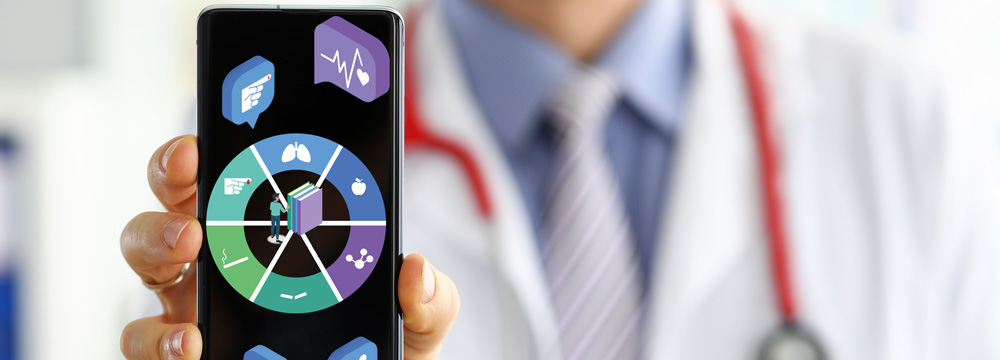
Digital health and telemedicine approaches
In the Islamic Republic of Iran, noncommunicable diseases (NCDs) contribute to approximately 81% of all deaths, with a 15% probability of death between the ages of 30 and 70 due to the four main NCDs. In response to the COVID-19 pandemic, digital health and telemedicine modalities were adopted to ensure continuous healthcare services for people living with NCDs while minimizing their exposure to the virus during visits to healthcare facilities.
To provide COVID-19 consultations and support, digital health and telemedicine approaches were initially piloted in six provinces, including 23 deprived areas, through telephone hotlines. Academic medical institutions collaborated to offer infrastructure support and implementation, leading to the official launch of the initiative in September 2020 by the Minister of Health, with three dedicated hotlines: 4030, 190 and 1666.
The first phase of the initiative focused on screening services at the primary health care level. Over the initial six months, approximately 78 million individuals underwent screening through phone or online self-assessment. Subsequently, the initiative expanded to include early case detection, contact tracing and follow-up for patients in home isolation and quarantine. In November 2020, outpatient care and services for vulnerable and high-risk groups were also introduced. The implementation followed a people-centered approach, involving local communities and stakeholders at the grassroots level. This expansion built upon the "Each House a Health Post" initiative previously introduced by the Minister of Health to support vulnerable households even before the COVID-19 pandemic.
The utilization of telemedicine services in the Islamic Republic of Iran has significantly surged during the COVID-19 pandemic. Numerous companies, mainly private, have actively provided tele-consultations and online booking services. The Islamic Republic of Iran witnesses an estimated daily provision of about 5000 online health services. Notable examples of telemedicine platforms include Imam Khomeini Hospital virtual clinic, Paziresh24, Drsaina and Sbm24 websites, as well as Snapp and Mask applications.
Integration of phone follow-up in the national guideline for the care of people living with NCDs
The implementation of telephone follow-up for people living with NCDs was incorporated into the telephone follow-ups and self-care guidelines in alignment with the existing general follow-up strategy of the Ministry of Health in the Islamic Republic of Iran. These guidelines incorporated screening services, education, counselling and follow-up of patients without complications. Community health workers provided support, advice and training on self-management for patients with high blood pressure or elevated blood glucose levels. These services were seamlessly integrated into the electronic health system at the primary health care level. The adoption of telemedicine and remote care for hypertensive and diabetic patients during the COVID-19 pandemic has demonstrated highly successful approaches.
4030 hotline for cancer care
During the COVID-19 pandemic, telemedicine methods were also implemented to ensure the continuous provision of care and follow-up for individuals undergoing immunosuppressive therapy or battling cancer. Nongovernmental organizations played a crucial role in addressing the needs of these high-risk groups by offering counselling and guidance through telephone calls via the dedicated number 4030. These services incorporated advice on self-care practices at home, preventive measures in public settings and healthcare facilities, as well as instructions for handling medical emergencies.
To establish these services, comprehensive training on cancer diagnosis and management was provided to volunteer service providers, focusing primarily on breast cancer, colorectal cancer and cervical cancer. Prospective telemedicine hotline operators underwent practical examinations to ensure their suitability for the role. Additionally, regular virtual capacity-building sessions were conducted for cancer care experts and healthcare managers to enhance their knowledge, skills and promote the utilization of digital technologies and applications in cancer control programmes and other healthcare initiatives.
Among the virtual health services available, the Mask application was developed as an intervention to facilitate smart physical distancing and efficient quarantine measures, aiming to prevent COVID-19 patients from encountering large crowds in public spaces and transportation facilities.
Story originated in 2021.




